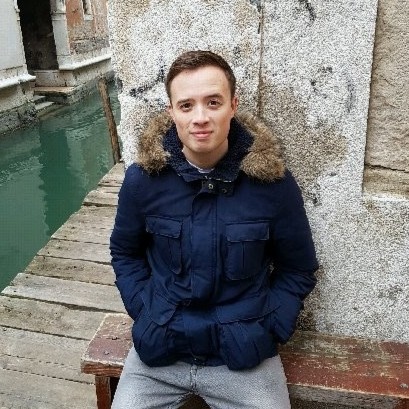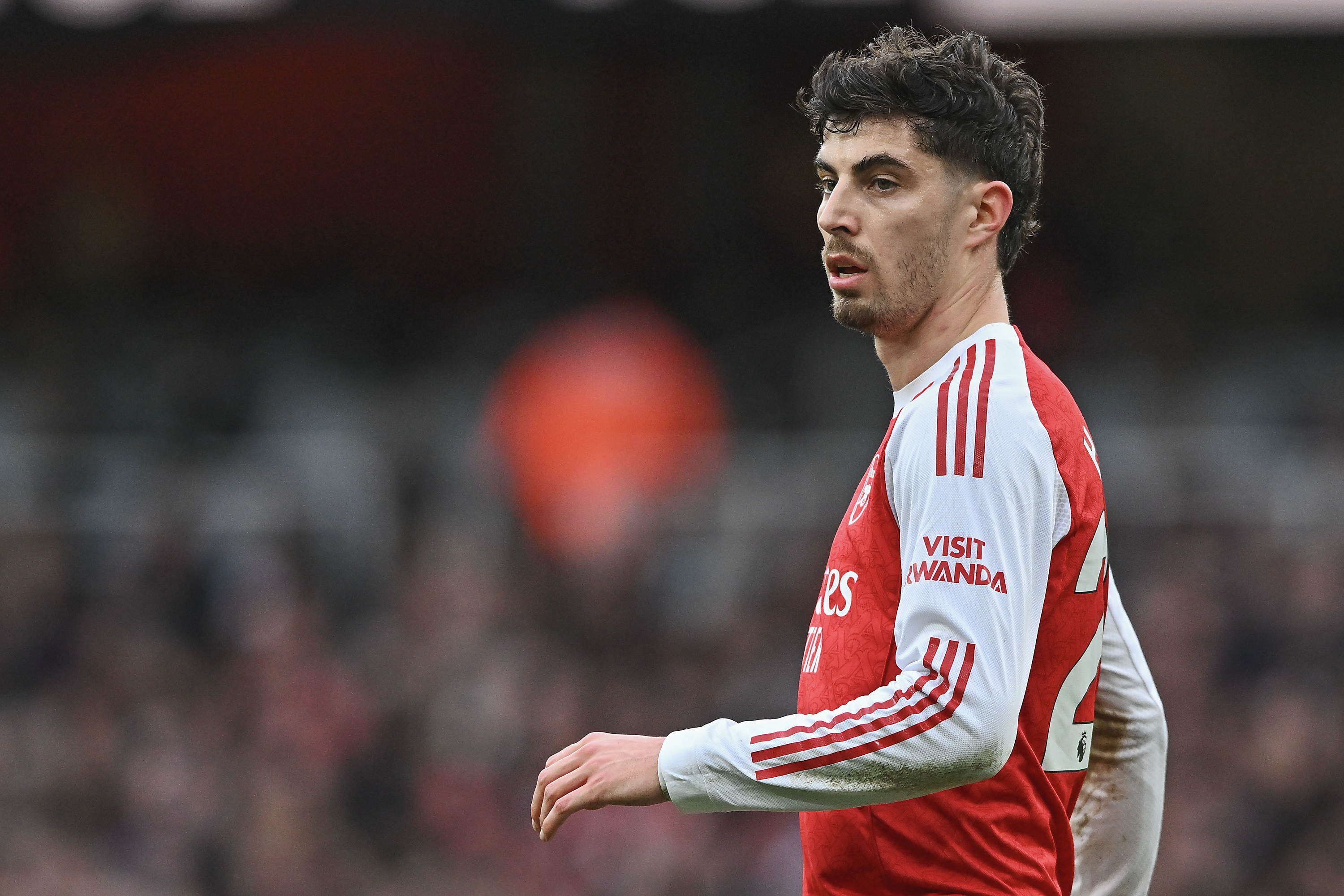Interview: "I'm not the Coca-Cola Kid – I'm Colin Kazim-Richards" From Bury to Brazil with football's misunderstood globetrotter
Most England-born footballers end up nowhere more exotic than Torquay, but the 30-year-old has played in seven different countries in as many years – and boy, does he have a few tales
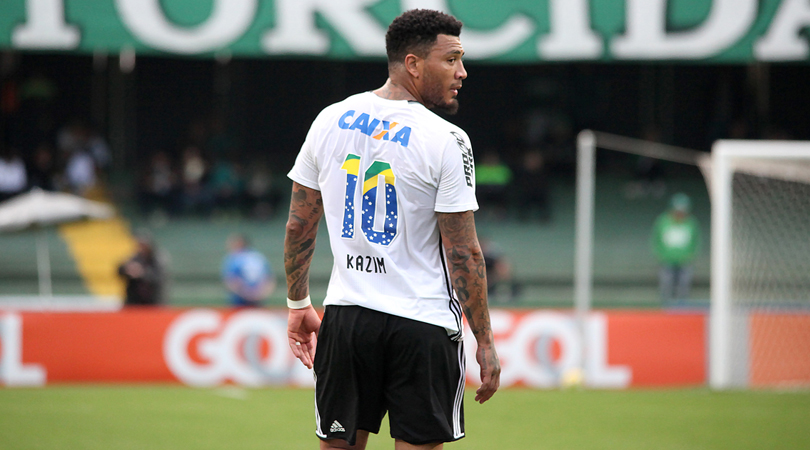
The best features, fun and footballing quizzes, straight to your inbox every week.
You are now subscribed
Your newsletter sign-up was successful
Want to add more newsletters?

Five times a week
FourFourTwo Daily
Fantastic football content straight to your inbox! From the latest transfer news, quizzes, videos, features and interviews with the biggest names in the game, plus lots more.

Once a week
...And it’s LIVE!
Sign up to our FREE live football newsletter, tracking all of the biggest games available to watch on the device of your choice. Never miss a kick-off!
Join the club
Get full access to premium articles, exclusive features and a growing list of member rewards.
O gringo é da favela! é o mais novo reforço do Timão! January 6, 2017
Popular conjecture will have you believe that it all started with a bottle of pop. When Brighton fan Aaron Berry landed his club £250,000 to ‘win a player’ with Coca-Cola in 2005, the Seagulls used it to buy an 18-year-old from Bury by the name of Colin Kazim-Richards. And so it was that The Coca-Cola Kid was born.
But that’s not even close to telling Kazim-Richards' story. In the grand scheme of things, it’s barely a footnote in his life so far.
“I’m not The Coca-Cola Kid – I’m Colin Kazim-Richards,” the man himself declares. “I don’t like that, because it’s all people say.” He’s talking to FFT from his new home in Curitiba, Brazil – the latest stop on an unpredictable journey that has taken him from east London to international recognition, with plenty of calling points in between.
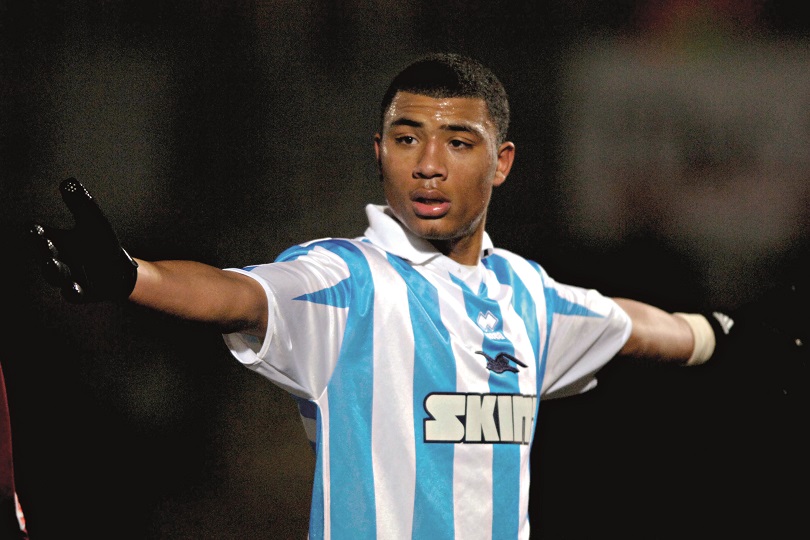
In a way, the unwanted nametag is indicative of his subsequent career outside of England; a fragmented flashpoint that makes for a cheap headline. Kazim-Richards is distrustful of the media, having been burned before (“In Turkey they have no boundaries or laws,” he grimaces).
He finally lost his cool with one particularly troublesome Dutch journalist, who the forward said had been “trying to make problems” between the 37-cap Turkey international and Michiel Kramer, a rival for a spot in Feyenoord’s first team. That episode helped to bring a premature end to his time in the Netherlands in February 2016 (but more on that later).
Hard knocks
It’s an adventure, another new experience, and already one of the best footballing and life decisions I’ve ever made
Kazim-Richards has a reputation for being involved in the odd misdemeanour, but it’s often with provocation – even when he joined Bury as a youngster.
The best features, fun and footballing quizzes, straight to your inbox every week.
“I was up there on my own,” Kazim-Richards explains, “and funnily enough, I didn’t like people putting bananas on my clothes. That was the joke at the time. I would complain, and then it would turn into fights; once, twice I would complain, but the third time I was just going to start something. I was getting bananas squashed in my clothes and hung on my peg every single day for about four weeks.
“Generally, though, people like to report on football’s controversies to sell papers. I don’t really respond that much to it. How can you expect people not to make mistakes? I’ve also done some pretty incredible stuff that people don’t like to report on.
“I left east London for Bury when I was 15 and that was the most difficult move I ever made. It was a different world, people calling me ‘chicken’ and ‘cock’. The first person who said ‘What’s up cock?’ to me, I wanted to fight. Up there it means a different thing but I didn’t know. I didn’t have anybody to help me like that.”

There are two sides to every story – and as FFT discovers, Kazim-Richards has plenty of those. His latest exciting chapter is taking place in Brazil at Coritiba, after eight whirlwind years in Turkey (Fenerbahce, Galatasaray, Bursaspor) were interspersed with spells in France (Toulouse), Greece (Olympiakos) and the Netherlands (Feyenoord), followed by a four-month stint at Celtic. As many months into his Brazilian adventure, it’s so far, so good.
“It’s an adventure, another new experience, and already one of the best footballing and life decisions I’ve ever made,” he tells FFT. “In Brazil they judge players on their footballing ability first. I think we have a problem with that in the UK. Ever since I was young, my life has been about playing football, so to come here and be able to do that is very liberating.”
Started on the streets
Over the past two years he has sunk more than £100,000 into his own local football academy
Leyton is very important to Kazim-Richards. It’s where it all began, on the streets that were his early training ground. But things could’ve turned out very differently. While his parents and football helped to give him a focus away from trouble, others never had that chance.
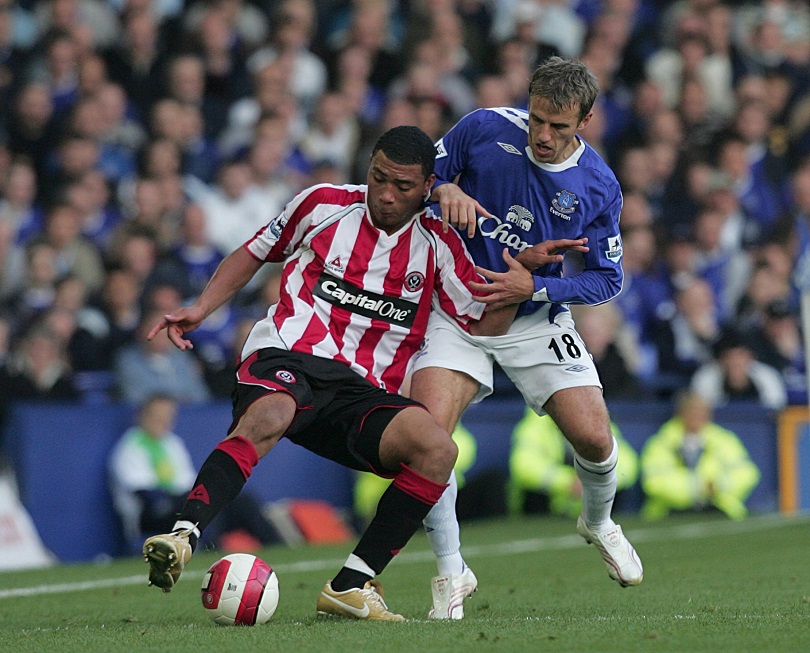
Over the past two years he has sunk more than £100,000 into his own local football academy (“We just beat the North London Academy 9-0,” he says with a grin), in the hope of giving kids whose families can’t afford expensive subscription fees a chance to play.
“You see a lot of mixed-raced kids now, but back then it wasn’t the norm,” he says. “I was born in the ’80s. My dad was 18; my mum, 17. My dad was black-Caribbean and my mum was Turkish-Muslim. My dad grew up fighting skinheads. He can tell stories about having to fight six or seven of them in a pub because he was with my mum, which wasn’t accepted.
“That stuff got instilled into me: be happy with who you are and remember where you’re from. I wouldn’t have it any other way because it put things in me that can’t be taught unless you grow up in a place like that. If I didn’t have my parents’ backing, it’d be easy for the streets to win. My friend just got out of jail after eight years. My other friend is in there for life.”
Life is precious
Three of his cousins were later snatched from him, in tragic – and unlinked – circumstances
While Kazim-Richards is eternally grateful for his parents’ support, nothing could shelter him from several harrowing experiences in his life before he left E17 for Bury at the age of 15. When he was three, he lost his infant brother Rodney to Edwards’ syndrome – “the first memory I have from when I was young… some things just never go away”.
Staggeringly, three of his cousins were later snatched from him, in tragic – and unlinked – circumstances.
“They were my best friends,” Kazim-Richards recalls. “My birthday is August 26; two of their birthdays were on September 4 and 7. So we were in different [school] years despite being born only two weeks apart – but we were still with each other every single day.
“One died from a heart attack while playing football. Another had a brain haemorrhage in the bath. My other cousin – Andros Townsend’s brother, Kurtis – died in a car crash. He would have become a footballer, too, believe me.“
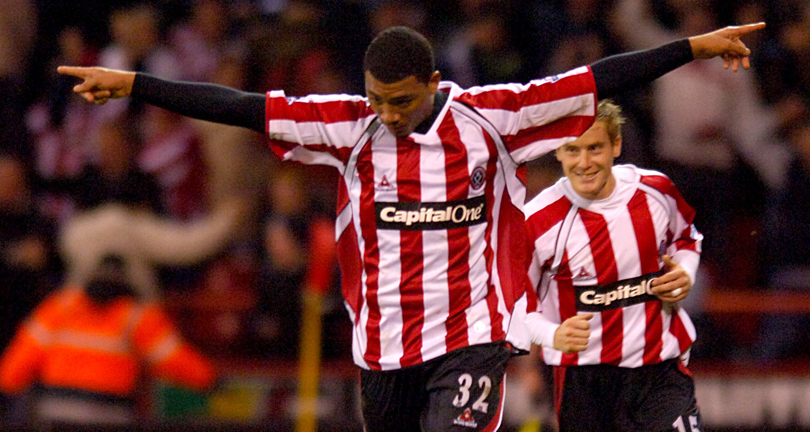
When you’ve been through things like what Kazim-Richards has, crossing the fiery divide from Fenerbahce to Galatasaray – “For a while I was hated by both sets of fans,” he says – doesn’t seem so scary.
Moving on
I'm not a shy person and I’ll always try to communicate with someone whether they talk Arabic, Serbian or whatever
Coritiba are Kazim-Richards’ 12th club, and his eighth away from England. Since leaving Sheffield United for Fenerbahce in 2007, he has returned to the nation of his birth only once for football, taking part in a difficult 2012/13 season on loan at Blackburn in which Rovers went through three permanent managers and finished 17th in the Championship. So there’s no desire to return anytime soon.
Brazil is his fourth destination since leaving Galatasaray permanently in 2013, but the 30-year-old seems more at home than ever before. But why on Earth does he move around so much?
“A lot of the media like to portray that I’ve been pushed away but let’s just get it straight – every move I’ve made in my career, I’ve done it myself,” Kazim-Richards admits. “But I admit when I was younger that I don’t think I appreciated playing for massive clubs like Fenerbahce. I’ve made some bad decisions, and you just have to stand up and be counted.
“There was a time I didn’t get called up for Turkey for a while because Fatih Terim (his former Galatasaray manager) had said so many times, ‘Don’t go to Olympiakos [on loan], I need you’. I couldn’t tell you to this day why I did, though. I got there and it just… wasn’t good. I called him to say I wanted to come back, but he basically told me ‘You had your cake, now eat it’. He was so influential in my career and gave me my first call-up to the national team, and so I think he took it personally which I understand. That was a bad decision, and one I’ve got to live with.”
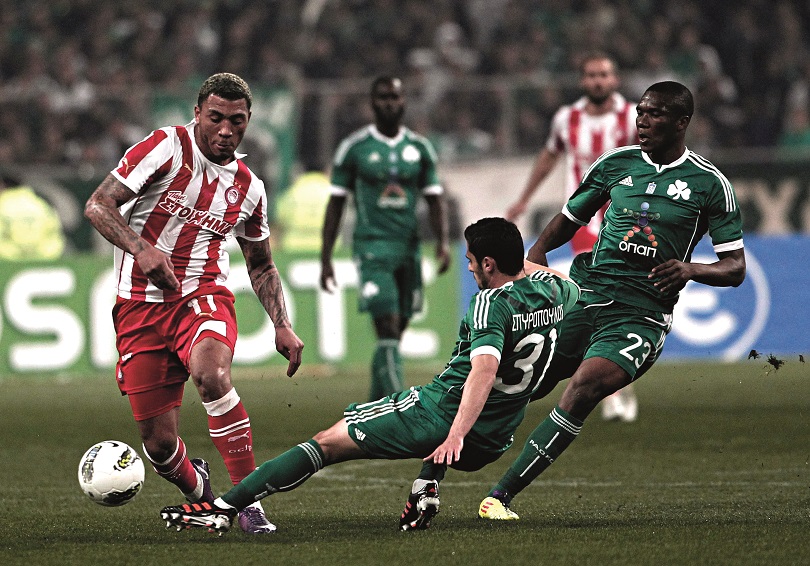
Adapting, then, is made all the more difficult – but what's his approach? “I don’t really have a comfort zone, and that helps,” Kazim-Richards says. “I’m not a shy person and I’ll always try to communicate with someone whether they talk Arabic, Serbian or whatever. I’ll try to get my point across. I’m a joker, but when it’s game time I’m serious, and I understand that not everyone is like me; they have comfort zones.
“I have done it so many times that it just becomes the norm. To be honest, I don’t go back to England much. All my family is there but I fly them out to see me. My mum is here now, and my dad went back five days ago. My brother will come out here in December.
“Sometimes I go back to England and get caught up in stuff that I shouldn’t – not things I’m doing myself, but stuff that’s going on with people I know. In Brazil you play from February to December, and in between then I’ve got that time to spend with my family. They are my priority, and they come first.”

Next page: “I went to buy a dog in Turkey... in the back the guy had lions, tigers and chimpanzees. He wanted €22,000 for a lion!”
New beginnings
It may be winter in Brazil but life is cosy in sunny Curitiba. Kazim-Richards lives there with his Brazilian wife, Mariana, and their two kids. On his 30th birthday in August, a card from Mariana contained a picture of a baby scan that showed No.3 is on the way. And on his Coritiba debut, he scored the winner against their arch rivals, Atletico Paranaense.
Despite hamstring troubles, Kazim-Richards is relishing life in a country he has longed to play in. He already speaks Portuguese – oddly, from his time in Turkey. Fenerbahce club-mate Alex de Souza, a Coritiba legend who retired there in 2014, was key in his June transfer.
“I do normal things, you know?” says the forward, telling FFT of his Brazilian routine. “A lot of footballers don’t like to let people know that they do, but I let my daughter paint my nails, and I do her hair too – I’m learning how to so I can have that bond with her. I’ve got my dogs out here too, and I like to walk them a lot because it gives me time to think. Everybody has their vice, and that’s mine.
I’ve seen some people suggest that Brendan Rodgers said he didn’t want me [this summer], but it wasn’t like that
“I’m the kind of person who wants to get the full experience when they go somewhere,” continues the trilingual Kazim-Richards, who can also speak Turkish. “I didn’t have a passport until I was 18. Then I moved to Fenerbahce at a time when the club was managed by Zico and they had Roberto Carlos, Deivid, Edu Dracena, Alex – all these Brazilians. Seeing the way they trained, and what they were doing with the ball, I just said, ‘Yeah, I want me some of that.’ I had to learn some of the language to do it.
“We lived in the same complex so we were always at each other’s houses, and I just picked up the language as I went along. You start with the essentials. When I met my missus it stepped up to another level, and now I’m really trying to learn a lot more. I would say that my Portuguese is probably at about 60 per cent.
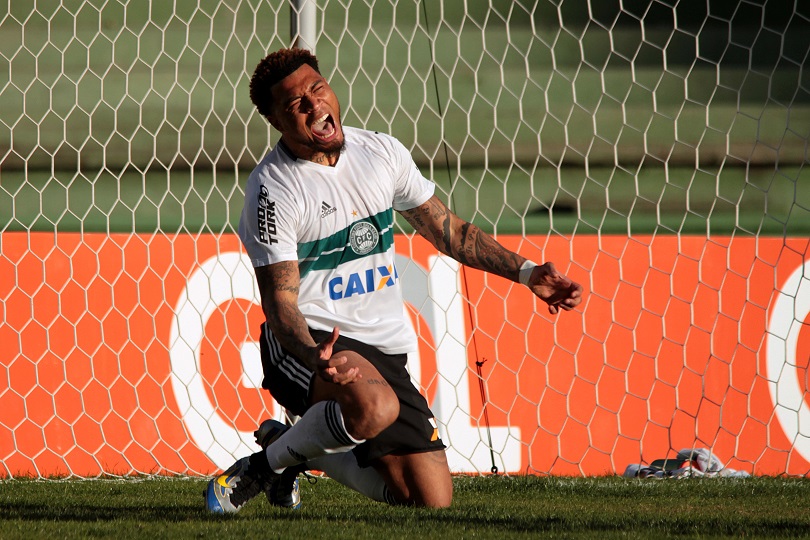
“The grammar is very hard, with masculine and feminine, so I don’t really bother with any of that. Sometimes I use shortcuts and people laugh, but they’re also sympathetic because they appreciate the effort.
“Before I went to Celtic there was interest [from Brazil], but it didn’t materialise. Then Celtic came up, and you can’t really turn them down. I’ve seen some people suggest that Brendan Rodgers said he didn’t want me, but it wasn’t like that. My heart was set on coming here, and that’s no disrespect to Celtic at all because I support them now. In the end I had quite a few options in Brazil, and Coritiba called Alex to get a reference on me. He doesn’t mince his words. That’s why a lot of people like him, and why we get along.”
Dogs and Drog
He still regularly chats to his former Galatasaray chum Didier Drogba, who became more than just a team-mate
Away from the pitch, Kazim-Richards has experienced things that probably wouldn’t ever happen to a player in the English league system.
“I went to buy a dog in Turkey,” he says, “and the guy said, ‘Kazim Kazim, I have something for you’. So I went in the back and he had lions, tigers and chimpanzees there. He wanted €22,000 for a lion! I was never going to buy one, but I thought I should jokingly, just to say I had a lion. It was crazy.”

Kazim-Richards collected an assortment of influential friends who have helped him along the way. He still regularly chats to his former Galatasaray chum Didier Drogba, for example, who became more than just a team-mate.
“He’s someone who made me stay out in training,” reveals Kazim-Richards. “This is Drogba: he’d be there for an hour, practising his shooting. When I left Gala for the final time, to Bursaspor, he was the one who told me to stay, but I said, ‘No, no, no’ and made the wrong decision… again. Even when I was at Bursaspor he’d FaceTime me and watch my games. Not to be corny, but he’s a super guy.”
While Drogba winds down the clock, Kazim-Richards still has time on his side. That’s especially true in his new surroundings, where life moves at a very different pace.
“I’ve been searching for happiness like this,” he confides in FFT. “I have found it on many occasions when playing outside of the UK. Football is ultimately something I love doing, but at the same time it’s a job as well. It feeds my family. Most footballers don’t like to admit it, but that’s how it is.
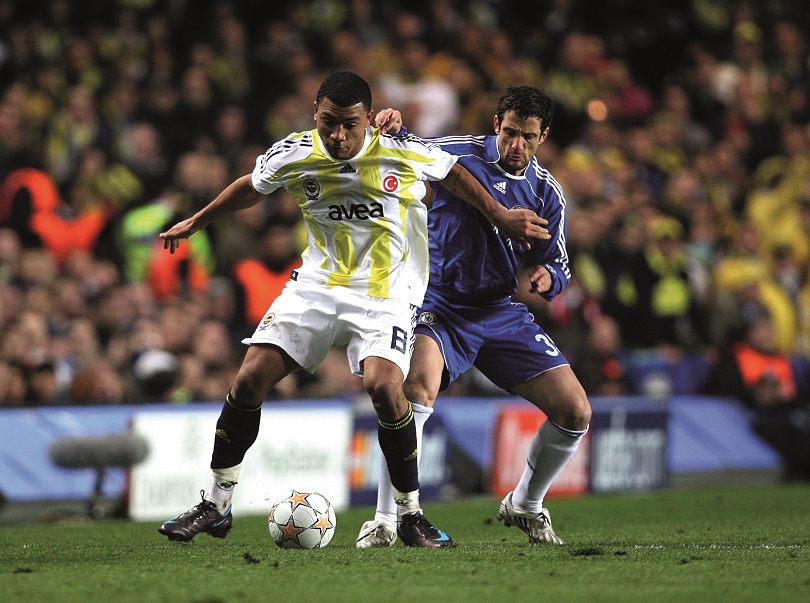
“My work is something I love, and I fell back in love with it all over again when I went to Holland – and especially now I’ve come here. For me, it’s something that’s got me out of a situation that all my family were in. It’s given a certain life to me, my kids, my dad and my brother. I’ve travelled the world. But at the same time I’m a winner, and football gives me that place to go out and win. That’s what it means to me.”
Farewell Feyenoord
It won't feel like something to stew over now for Kazim-Richards, but that he ended up leaving Feyenoord under a cloud last February will have irked at the time, after the Turkey international had finally rediscovered his love for the game in the Eredivisie. Indeed, in his 2014/15 loan spell with the club he plundered 11 goals in his 27 league appearances, and was excellent in the Europa League before Feyenoord were sent packing by Roma in the knockouts.
I’m a footballer but I only do that at certain times of the day – after that I go home. I’m a person, you know?
But things eventully started to unravel when Giovanni van Bronckhorst replaced Fred Rutten in March 2015 and, despite having made his loan move from Bursaspor permanent in the summer, Kazim-Richards found himself resigned to the bench.
“Fred Rutten had a big influence on me at Feyenoord because he brought me to the club, gave me the confidence to perform, and power in the dressing room,” says the 30-year-old. “Gio van Bronckhorst didn’t like that because he was a new coach. Rutten was content in his authority and experienced enough that he would let me – and not just me, the older players generally – run the dressing room.
“There are a lot of clubs and players who do that. I can’t see Jose Mourinho saying something to Zlatan Ibrahimovic about it, for example. Rutten would be like, ‘I’ll talk to you, and you just relay what I’ve said’. That was to me, Karim El Ahmadi, Kenneth Vermeer, Ruben Schaken… more experienced players.
“The divide in that team was big – you’d got players who were 16, 17 in the dressing room, and then those who are 30, 31. Van Bronckhorst didn’t like that, though – he wanted to be the sole authority and that’s why it was a problem. But each to their own.”
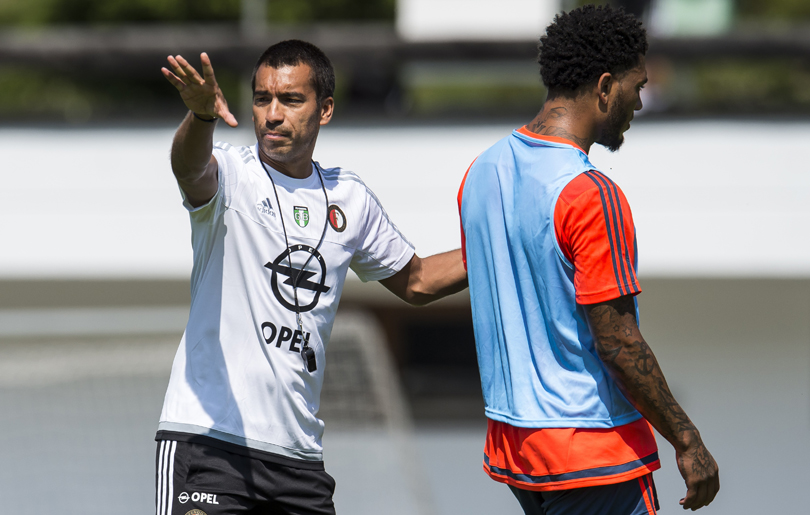
In January 2016, after offering Algemeen Dagblad journalist Mikos Gouka some choice words in person after a series of articles he felt were both unfair and ultimately untrue, the forward was banned by his club and had left for Celtic within a month. So what really happened?
“First of all, it doesn’t matter whether you’re a journalist, footballer, a guy who works in IT or a billionaire – you have to respect people as human beings first. Respect me as a man first,” Kazim-Richards asserts. “This guy just kept writing stuff that had nothing to do with football. It’s not my fault I wasn’t playing – the coach decided to go with Michiel Kramer. Me and Kramer were cool, very cool. We sat next to each other in the locker room every day.
“But he kept trying to make problems with me and Kramer, putting stuff in the paper. It became bad. Feyenoord fans are passionate, they’re fanatics. I can’t blame people sometimes: when you see something over and over again, despite your better judgement you might start believing it. I’ve seen stories in the papers thinking ‘What was I doing that day? Was I even there?!’ It became difficult. My wife was walking down the street and some guy came up to her saying ‘Tell your kanker husband to f*** off’. In Dutch, ‘kanker’ means cancer, it’s horrible. She was with my son too.
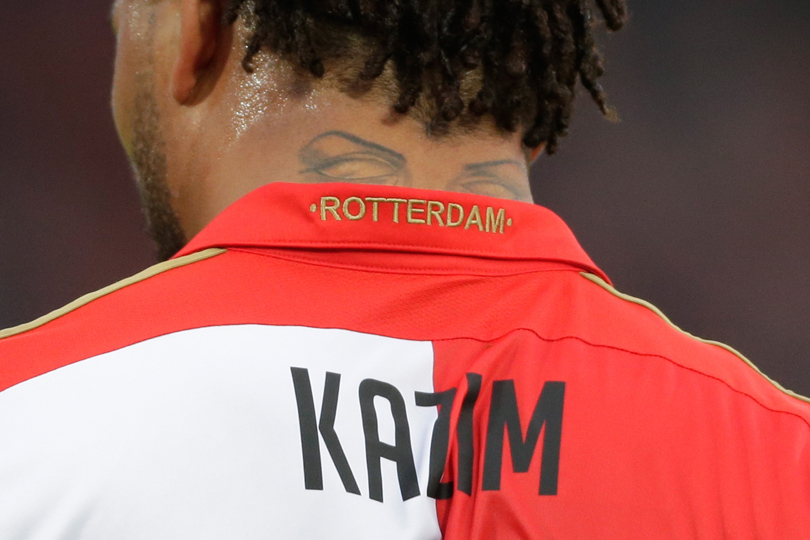
“So when I saw the journalist I asked him: ‘What’s up? You’re in front of my face now, so let’s not hide behind pens. If you’ve got a problem let’s talk.’ Obviously I said it more in-your-face than that, so he started crying out that I’d threatened him. I didn’t do that, though, I just wanted us to fix it then rather than him writing stuff and then me being pissed. I’m a footballer but I only do that at certain times of the day – after that I go home. I’m a person, you know?
“It was easy then for Feyenoord to make a problem. I was earning a certain amount of money and not playing at the time, so for them it was an easier business decision to suspend me. But still, I didn’t have to leave. I was cool, Rotterdam is a beautiful place. I had a good time, and a lot of people who became mates I still speak to now. But I made the decisions for me and my family, and nobody else.”
Next step?
So what's next in this incredibly colourful career? A return to the UK isn’t on the cards, but apart from that Kazim-Richards' future is very much open. Even the man himself doesn’t have a clue.
“I don’t know where I’ll end my career,” he confesses. “Right now, I want to win the Copa Sudamericana. That would be the pinnacle of my career, and I’ve played in a European Championship semi-final.
“I just want to keep showing people from places like where I’m from that they can do anything. It sounds clichéd, but look at me now. I was born in Leytonstone, raised in Leyton and Walthamstow, and now I’m playing football in Brazil. It’s incredible.
“While I’m here, there are things I want to do. You can’t just come to a place, earn their money and leave. That’s not cool. I want to give something back and try to help people.”
This feature first appeared in the November 2016 issue of FourFourTwo magazine. Subscribe!
Joe was the Deputy Editor at FourFourTwo until 2022, having risen through the FFT academy and been on the brand since 2013 in various capacities.
By weekend and frustrating midweek night he is a Leicester City fan, and in 2020 co-wrote the autobiography of former Foxes winger Matt Piper – subsequently listed for both the Telegraph and William Hill Sports Book of the Year awards.
 Join The Club
Join The Club











